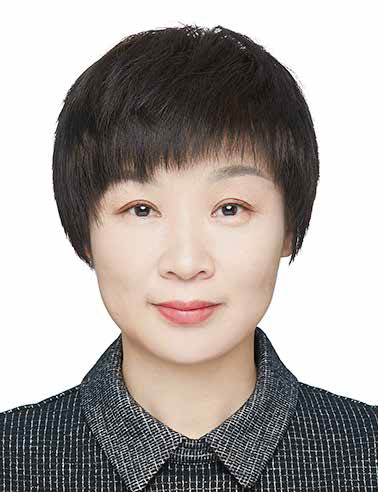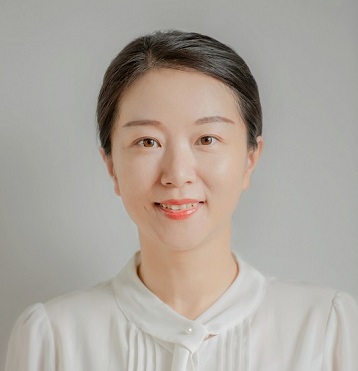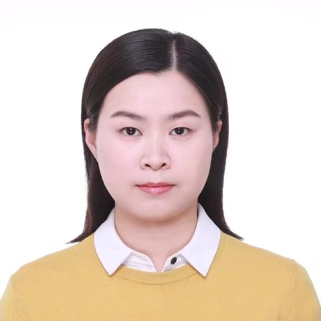- Frontiers of Machine Learning
- Multimodal Large Language Model and Generative AI
- Smart Earth Observation and Remote Sensing Analysis: From Perception to Interpretation
- 3D Imaging and Display
- Forum on Multimodal Sensing for Spatial Intelligence
- Brain-Computer Interface: Frontiers of Imaging, Graphics and Interaction
- Foundation Models for Embodied Intelligence
- Workshop on Machine Intelligence Frontiers: Advances in Multimodal Perception and Representation Learning
- Human-centered Visual Generation and Understanding
- Spatial Intelligence and World Model for the Autonomous Driving and Robotics
- Seminar on the Growth of Women Scientists
- Video and Image Security in the Era of Large Models Forum
- ICIG 2025 Competition Forum
- Visual Intelligence Session
Themed “Development and Growth of Women in Science”, this seminar focuses on the career trajectories, research achievements, and personal growth experiences of women scientists in the fields of computer graphics, imaging, and related technologies. The forum will feature three distinguished women scientists, each delivering a 30-minute keynote presentation on their research areas, followed by a 30-minute panel discussion.
In recent years, the proportion and impact of women researchers in cutting-edge fields such as graphics and imaging have steadily increased. However, challenges remain in areas such as career development, access to resources, and academic networking. How to further unlock the potential of women in science, broaden their career paths, and cultivate an equitable and inclusive research ecosystem has become an urgent topic of concern. Against this backdrop, the Women Scientists Seminar is initiated to provide a platform for experience sharing and intellectual exchange. It not only recognizes the significant contributions of women in research but also reflects the conference’s commitment to promoting diversity and gender equality in science.
This forum aims to inspire creativity and innovation among women researchers by establishing a high-level exchange platform, encouraging broader participation of women in science, and promoting diversity and inclusiveness within the research community. By inviting leading female scientists to share their work and career journeys, the seminar aspires to set powerful examples and motivate more women to pursue careers in science with confidence and determination.
Schedul
Nov. 2nd 15:10-17:10

Organizer

Wang Yunhong
Beihang University, Professor
Biography:
Wang Yunhong, Dean of the School of Computer Science at Beihang University, Professor, and Doctoral Supervisor, is a Fellow of IEEE, IAPR, CCF, and CCAI. She serves as Chair of the Intelligent Interaction Committee of the Chinese Association for Artificial Intelligence and as an Executive Council Member of the Chinese Computer Society, Chinese Association for Artificial Intelligence, and Chinese Society of Image and Graphics. Her research and teaching focus on computer vision and pattern recognition, with over 300 papers published in prestigious international journals and conferences. She served as an editorial board member of IEEE Transactions on Information Forensics and Security, IEEE Transactions on Dependable and Secure Computing and as an associate editor for Pattern Recognition. Recognized for contributions to biometric recognition, computer vision, and pattern recognition, he was elected as an IAPR Fellow in 2018. Her work in facial recognition and iris recognition led to his election as an IEEE Fellow in 2020. Her honors include the Second Prize of the National Technology Invention Award, the China Youth Science and Technology Award, the Maria Pretrou Award from the International Association for Pattern Recognition (IAPR), and the Xia Peisu Award from the China Computer Federation (CCF)
Presenters

Xin Yang
Huazhong University of Science and Technology, Professor
Biography:
Yang Xin, Professor and Doctoral Supervisor at Huazhong University of Science and Technology (HUST), is a Huazhong Distinguished Scholar and recipient of the National Science Fund for Excellent Young Scholars. Her research focuses on computer vision and medical image intelligence analysis. She has led seven national-level research projects, including the National Key R&D Program, NSFC International Cooperation Projects, and NSFC General Projects. With over 90 publications as first or corresponding author in top-tier journals and conferences such as TPAMI, IJCV, and CVPR, she has been recognized as a Stanford Top 2% Global Scientist. Her honors include: First Prize of Hubei Provincial Technology Invention Award, Shi Qingyun Women Scientist Award (China Society of Image and Graphics, CSIG), Youth Science and Technology Award (Chinese Medical Science and Technology Award), Best Paper Honorable Mention ISMAR, CSIG Distinguished Member, World Internet Conference Leading Scientific & Technological Achievement. As an educator, she has guided students to win gold and silver medals in the China International "Internet+" Competition and over 10 awards in prestigious domestic and international competitions. She serves as Associate Editor for IEEE-TMI and IEEE-TVCG, Area Chair for CVPR and MICCAI, Technical Committee Member of IEEE BISP, Deputy Secretary-General of CSIG Young Scientists Committee, Deputy Secretary-General of CCF Multimedia Technology Committee.
Speech Title:Visual Spatial Perception: Methods and Applications
Abstract:Visual spatial perception in open environments still faces significant challenges in generalization capability, real-time performance, and robustness. This presentation will introduce our latest visual depth perception model, MonSter, which innovatively integrates monocular depth priors with stereo matching techniques. The model has achieved top-ranked performance across five mainstream benchmark leaderboards while demonstrating exceptional zero-shot generalization ability. Building upon MonSter, we have further developed a lightweight version optimized for UAV platforms, enabling efficient real-time visual perception on low-power devices. Additionally, the talk will share our recent advancements in visual pose estimation, along with applications of these technologies in autonomous flight and navigation for intelligent devices such as drones and AR glasses.

Xuejin Chen
University of Science and Technology of China, Professor
Biography:
Xuejin Chen is currently a full professor with the School of Information Science and Technology, University of Science and Technology of China. She received the B.S. and Ph.D. degrees from the University of Science and Technology of China. She conducted research as a postdoctoral scholar with the Department of Computer Science in Yale University. She also visited Stanford University and Microsoft Research Asia in 2017 and 2015 respectively. Her research interests include 3D modeling, geometry processing, and biomedical image analysis. She has authored or co-authored over 90 articles (including ACM TOG, IEEE TMM, ACM SIGGRAPH, ICCV, NeurIPS). She was one recipient of the Honorable Mention Awards of Computational Visual Media in 2019, GDC 2022, 3DMM 2024 and the first prize of XPRESS challenge in ISBI 2023. She also serves as Associate Editor of IEEE Trans TIP, and served as TPC members of Siggraph Asia and Area chair of ICCV.
Speech Title:Structure-Guided Multi-scale 3D Reconstruction and Modeling
Abstract:3D modeling and geometric analysis are the foundation for artificial intelligence systems to perform spatial perception, cognition, and interaction. They are also key technologies for reconstructing neural connectivity structures in the field of brain neuroscience. High-precision 3D reconstruction and accurate morphological analysis of various targets with significant scale differences, diverse shapes, and varying data quality poses tremendous technical challenges. Structural information provides important high-level guidance to eliminate ambiguities in fine reconstruction, aligning more closely with human visual perception and cognitive mechanisms. In this talk, I will report our recent work on 3D scene reconstruction based on neural rendering, 3D object surface reconstruction from point-based representation, and neuron morphology analysis and reconstruction, following the key concept of leveraging structure priors during reconstruction.

Jing Huo
Nanjing University, Associate Professor
Biography:
Jing Huo is an Associate Professor and Ph.D. supervisor in the School of Computer Science at Nanjing University. She received her Ph.D. in Computer Science from Nanjing University in 2017 and her B.S. from the Honors School of Nanjing Normal University in 2011. She has held visiting research positions at the University of Manchester and the University of Hong Kong. In 2022, she was selected for the National High-Level Young-Talent Program. In 2018, she received the Excellent Doctoral Dissertation Award from the Jiangsu Computer Society and the Second-Class Prize of the Jiangsu Science and Technology Award.Her research interests encompass novel machine-learning techniques, including generative models, few-shot learning, reinforcement learning, and their applications to intelligent perception and decision-making. She was founded by the National Natural Science Foundation of China, Jiangsu Natural Science Foundation, etc. She has published more than 70 papers in leading journals and conferences, such as CVPR, ICCV, AAAI, IJCAI, ACM MM, TPAMI, TIP, TMM, TNNLS, TCYB, and PR.
Speech Title:Research on Open-World Robotic Manipulation Technologies
Abstract:Open-world robotic manipulation faces numerous complex challenges, including, open-set semantic understanding of objects, long-horizon task planning, and precise execution. This talk will first highlight the latest research progress that combines imitation learning with large model techniques for tabletop manipulation tasks. We will then present our work on generalizable, long-horizon robotic manipulation tasks. Finally, future directions for these technologies will be discussed.

